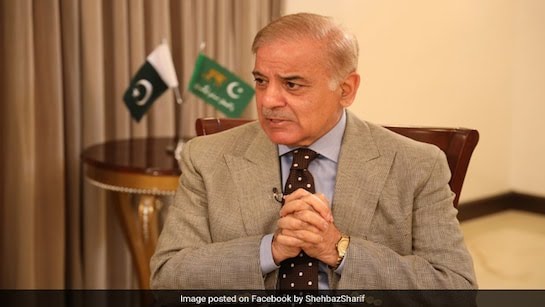New Delhi: In the wake of the deadly Pahalgam terror attack that claimed 26 lives, including a Nepalese national, Pakistan Prime Minister Shehbaz Sharif announced his country’s willingness to participate in a “neutral, transparent and credible” investigation. The incident has provoked strong diplomatic and security measures from India, which has accused Pakistan of sheltering the handlers and backers of the terrorist group involved, reported the NDTV.
Speaking at the graduation ceremony of the Pakistan Military Academy in Kakul, Khyber-Pakhtunkhwa, Sharif said, “The recent tragedy in Pahalgam is yet another example of this perpetual blame game, which must come to a grinding halt. Pakistan is open to taking part in any neutral, transparent and credible investigation.”
The Resistance Front (TRF), widely seen as a proxy of the Pakistan-based terror group Lashkar-e-Taiba, has claimed responsibility for the attack. Intelligence reports revealed that Adil Ahmed Thoker, one of the attackers, had crossed into Pakistan, received military training, and re-entered India along with several Pakistani militants after six years.
Sharif reiterated Pakistan’s condemnation of terrorism in all its forms and emphasized that the Pakistani armed forces are “fully capable and prepared” to defend their country’s sovereignty.
His remarks come after Pakistan’s Defence Minister Khawaja Asif also expressed readiness to cooperate with an international investigation during an interview with The New York Times.
India’s Strong Response
Following the attack, India’s Cabinet Committee on Security (CCS), led by Prime Minister Narendra Modi, convened to decide on a series of stern measures against Pakistan.
Foreign Secretary Vikram Misri announced several key actions:
Both nations will downgrade their diplomatic presence, reducing staff in their respective high commissions from 55 to 30 by May 1.
India has expelled Pakistan’s defence, naval, and air advisors stationed at the High Commission in New Delhi, declaring them persona non grata. Reciprocal withdrawals will occur in Islamabad.
India suspended the SAARC Visa Exemption Scheme for Pakistani nationals, immediately cancelling any existing visas under this programme.
The Integrated Check Post at Attari, the primary land crossing between India and Pakistan, will be closed. Pakistani nationals currently in India must leave by May 1.
India has also suspended the Indus Waters Treaty of 1960 until Pakistan “credibly and irrevocably” stops supporting cross-border terrorism.
Meanwhile, tensions along the Line of Control (LoC) have intensified. Pakistani troops engaged in unprovoked firing on Indian positions for a second consecutive night, prompting retaliation. No casualties have been reported so far.
As diplomatic ties strain further, both nations remain on high alert, with global observers watching developments closely.




